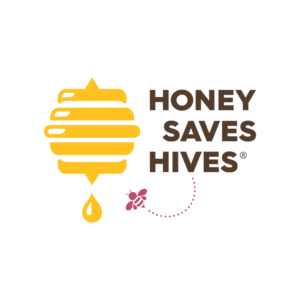
When buying honey-sweetened products from our Honey Saves Hives partners throughout the year, you’re supporting beekeepers’ ability to keep healthy bees. You’re helping maintain a balance between pollinators and our planet’s ecosystem. And, without this contribution, many of the most popular food and beverage products would not be available. One-third of the foods we eat and more than 90 different crops — including fruits, nuts, vegetables and crop seeds — would not be available without honey bee pollination.
Honey Bee Power
Honey bees are truly incredible creatures. Did you know that each honey bee will only make 1/12 of a teaspoon of honey in her lifetime? But the power of the honey bees is so much more than the liquid gold of their namesake. In fact:
- They are responsible for every third bite of food we eat.
- They are prolific foragers and visit thousands of flowers daily.
- Their pollination efforts are second to none and account for about 80% of all insect pollination.
- Their efficiency makes them indispensable to agriculture as we know it in the United States and around the world.
The Science of Pollination
Honey bees follow a strict plant-based diet. They get their food from the nectar and pollen found in flowering plants and trees. The nectar of a flower provides their carbohydrates, while the pollen provides their protein source. The process of foraging for these food sources triggers pollination.
When honey bees are pollinating, everyone wins. The bees grow stronger from access to a varied and diverse diet, the farmer benefits with a bountiful harvest, the beekeeper is rewarded with a healthy, well-fed hive and excess honey that consumers get to enjoy at restaurants, within packaged goods, and on grocery store shelves.
On the Menu and in the Grocery Store
If you want to see the impact of pollination on our food supply for yourself, pick out your favorite recipe or product in your pantry. Look at the ingredients and count how many are produced through honey bee pollination. Here’s just a partial list of ingredients and foods that honey bees pollinate: